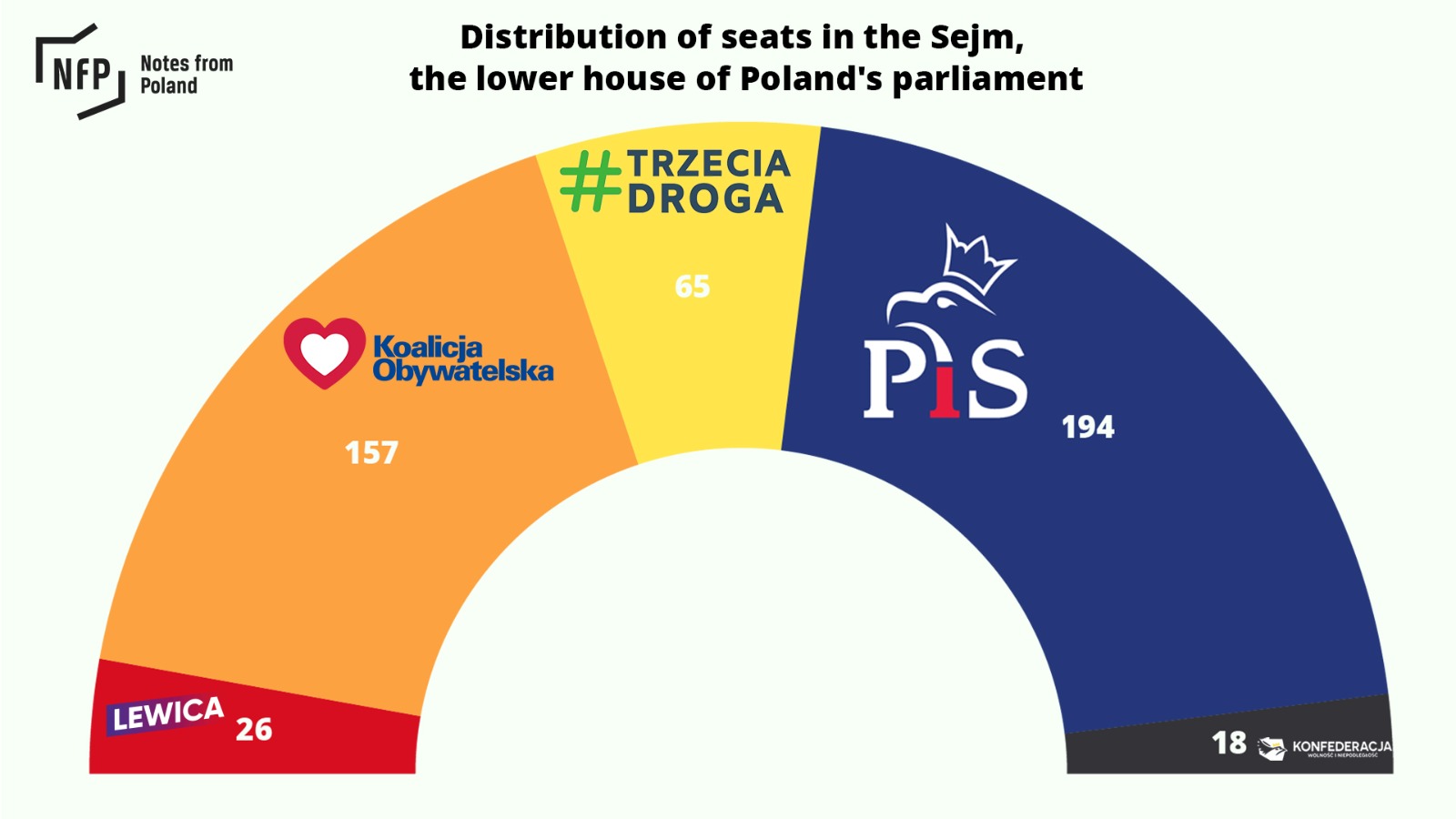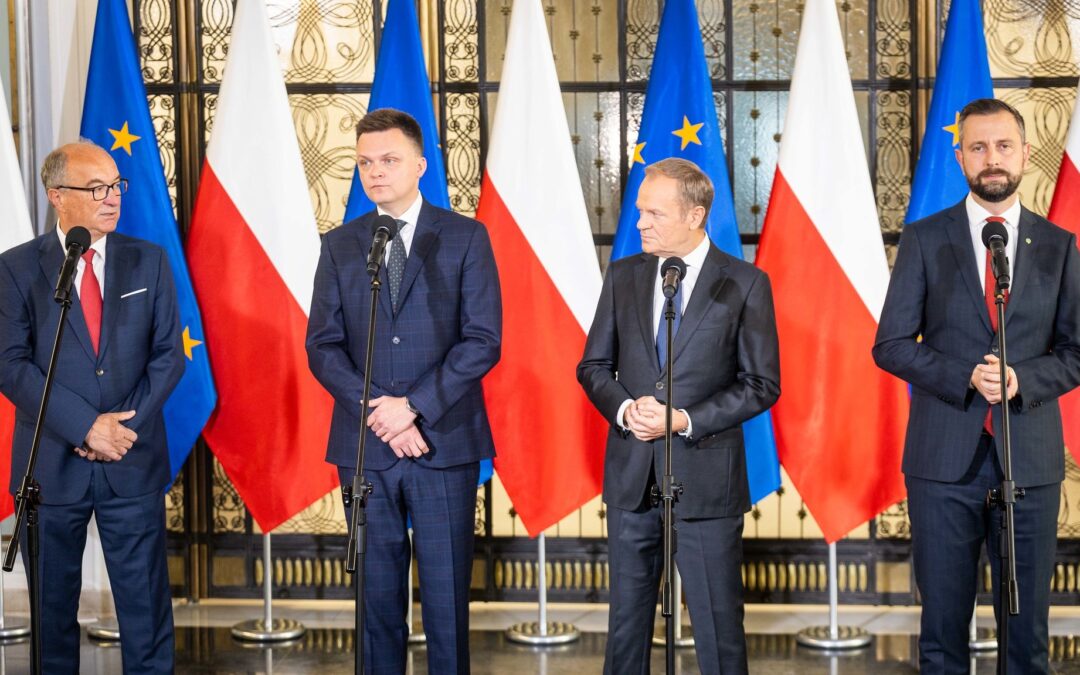The three opposition groups that together won a parliamentary majority at elections earlier this month have jointly declared their desire to form a coalition government and have named Donald Tusk as their candidate for prime minister.
The announcement – made by their leaders at a press conference in parliament this morning – came just before President Andrzej Duda, whose responsibility it is to name a prime minister, began talks with each group that will sit in the Sejm, the more powerful lower house of parliament.
We answer 12 questions about Poland's new government, including:
1. How will it be formed?
2. Will it be stable?
3. How will it tackle rule of law and abortion?
4. Can it unlock EU funds?
5. Will it face presidential vetoes?Read our full analysis here⬇️https://t.co/oLK33waftV
— Notes from Poland 🇵🇱 (@notesfrompoland) October 23, 2023
It remains uncertain whether Duda will give the ruling national-conservative Law and Justice (PiS) party or the opposition the first chance at forming a government. As the largest party in the new parliament, by tradition PiS would be given that opportunity.
However, it is almost certain that PiS cannot secure a parliamentary majority and today one of the opposition’s leaders, Szymon Hołownia of the centre-right Third Way (Trzecia Droga), urged Duda not to “waste any more time”.
“We will encourage the president not to delay and as a first step he can appoint a prime minister from the majority that is standing here today,” added Władysław Kosiniak-Kamysz, the other main leader of the Third Way.

Włodzimierz Czarzasty, one of the leaders of The Left (Lewica), likewise appealed to Duda: “No more scheming. There is a majority in the Sejm that will elect a government. We support the designation of Donald Tusk and giving him the mission of forming a government.”
Tusk, who is the figurehead of the centrist Civic Coalition (KO), thanked his partners for their trust in him. “We have built a cooperation based on partnership and trust,” he said. “We are ready to form a government.”
Tusk added that he is now “counting on constructive cooperation with the president and quick decisions, because Poles are indeed waiting for quick decisions”.
NA ŻYWO: Oświadczenie przewodniczącego @DonaldTusk, Władysława Kosiniaka-Kamysza, Szymona Hołowni i Włodzimierza Czarzastego. https://t.co/TNU2jG19Xi
— PlatformaObywatelska (@Platforma_org) October 24, 2023
Duda is holding his meetings in the order of the various groups’ election results. He is therefore first inviting PiS, as the largest party, with that meeting ongoing at the time of publication.
This afternoon, the president will meet with Civic Coalition, then tomorrow with Third Way, The Left and finally the far-right Confederation (Konfederacja).
Duda has said that he will ask each group about their candidate for prime minister, whether they believe they can secure a parliamentary majority, and about their planned economic, defence and energy policies.
President Duda has announced a schedule for meeting with all parliamentary groups next week about forming a new government:.
Tuesday
12:00 – PiS
14:00 – KOWednesday
11:00 – Third Way
13:00 – The Left
15:00 – Confederation https://t.co/ndCPNeD50g— Notes from Poland 🇵🇱 (@notesfrompoland) October 20, 2023
The president has given no hint as to whom he will give the first shot at forming a government. Last week, in the wake of the elections, one of his aides, Małgorzata Paprocka, suggested that it would be PiS.
However, since then another presidential minister, Marcin Przydacz, has hinted that the opposition could be given the opportunity.
“If the opposition is united, it will be able to form a government,” he told broadcaster RMF yesterday. “What is most important is that this government is formed…based on a parliamentary majority.”

Notes from Poland is run by a small editorial team and published by an independent, non-profit foundation that is funded through donations from our readers. We cannot do what we do without your support.
Main image credit: Klub Lewicy/Flickr (under public domain)

Daniel Tilles is editor-in-chief of Notes from Poland. He has written on Polish affairs for a wide range of publications, including Foreign Policy, POLITICO Europe, EUobserver and Dziennik Gazeta Prawna.



















